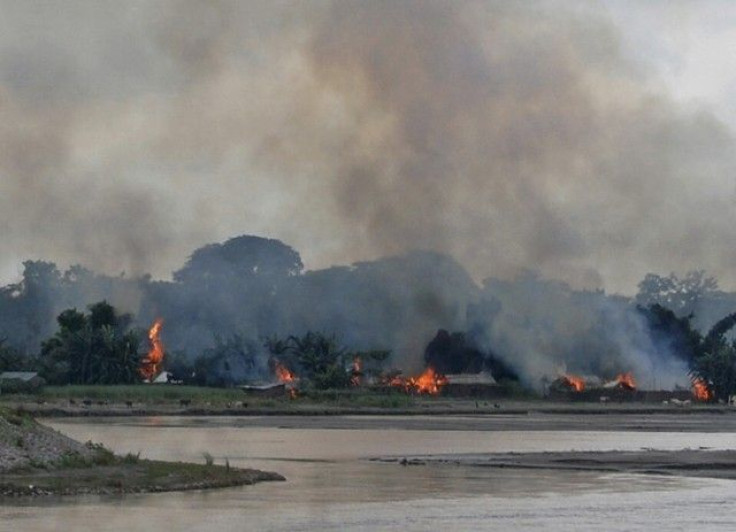Ethnic Clashes In Northeastern India Repetition Of Past; Assam Government Accused Of Ignoring Warnings

Ethnic violence in India's northeastern state of Assam, which has left 58 dead and 200,000 displaced so far, was a tragedy waiting to happen, affected by the influx of immigrants who mostly came from the former East Pakistan before it became Bangladesh in 1971.
The state government led by Chief Minister Tarun Gogoi has refuted charges that it had paid no heed to the prior warnings of the simmering ethnic tensions between the indigenous Bodo community and the Muslim settlers. But the recent incident, which broke out in Kokrajhar district in Assam July 20 and then spread to three other districts, has only brought back tragic memories of similar experiences in the past.
Though immigration was part of the region's history since the mid-1930s, it was the anti-foreigners movement in Assam from 1979 to 1985 that drew worldwide attention to the issue of large-scale migration and the resulting ethnic tensions. The worst among the ethnic conflicts in Assam was the Nellie massacre of 1983 that left 3,000 people dead, most of them Muslims from Bangladesh who immigrated illegally.
In 2003, Bodoland Territorial Council (BTC) was created to fulfill the economic, educational and linguistic aspirations and the preservation of land-rights, socio-cultural and ethnic identity of the Bodos and to speed up the infrastructure development in the BTC areas. The council's jurisdiction extends over thousands of villages and has the legislative powers over 40 subjects.
Since its inception, the BTC has faced severe opposition from non-Bodos, who allege that Bodos would create trouble for non-Bodos living in areas under the council's jurisdiction.
The ongoing violence was triggered when four men from the Bodo community were killed in Kokrajhar district by Muslims who were seeking revenge for the attack on two Muslim student leaders. However, the tensions stem from an underlying fact that the Bodos, who earn their living through agriculture, feel they are being deprived of their land due to the Bangladeshi immigrants.
Gogoi, the three-time Chief Minister of Assam, is facing the heat from his own party (Congress) as well as the opposition for failing to act in time and for delaying his visit to the troubled zone until the fifth day of the continued violence.
Congress MP Rehman Khan has openly criticized Gogoi, seeking his replacement.
"There is a failure somewhere, but violence is contained. And now the Chief Minister is visiting. The major problem is how to rehabilitate the people who have fled, how to infuse confidence in the people and take up the rehabilitation system and see they are moved to their places from the camps," Rehman Khan said, as reported by CNN's India network CNN-IBN.
Gogoi dismissed the allegations that he slept over a confidential report submitted by the Assam Pradesh Congress Committee (APCC) warning of a possible riot. He said that the clashes were happening "due to clash of interest" and not due to infiltration of the Bangladeshi immigrants as part of a conspiracy to create trouble, as reported by BTC chief and Bodo People's Front (BPF) president Hagrama Mohilary in May.
However, some experts say that the "homegrown" Muslims (and not fresh intruders) and Bodos have triggered the present crisis, the Hindustan Times has reported.
Meanwhile, opposition Bharatiya Janata Party's attempts to draw parallels between the ethnic strife in Assam and the post-Godhra communal riots in Gujarat was met with heavy criticism from senior Congress leader Digvijaya Singh.
"Communal riots took place in Gujarat under the nose of the chief minister in cities like Ahmedabad. In Assam it was in rural areas where the administration had difficulty in reaching due to the rains this time," Singh said, as reported by the Times of India.
Singh slammed BJP's fact-finding mission to the violence-torn region, saying the party simply "add fuel to the fire."
"BJP's fact-finding team goes simply to add fuel to the fire and not to quench it. BJP has been communalizing the issue of migration from the very beginning," Singh said. "The illegal migrants also include Hindus along with Muslims. BJP only talks about Muslim illegal migrants."
© Copyright IBTimes 2024. All rights reserved.












